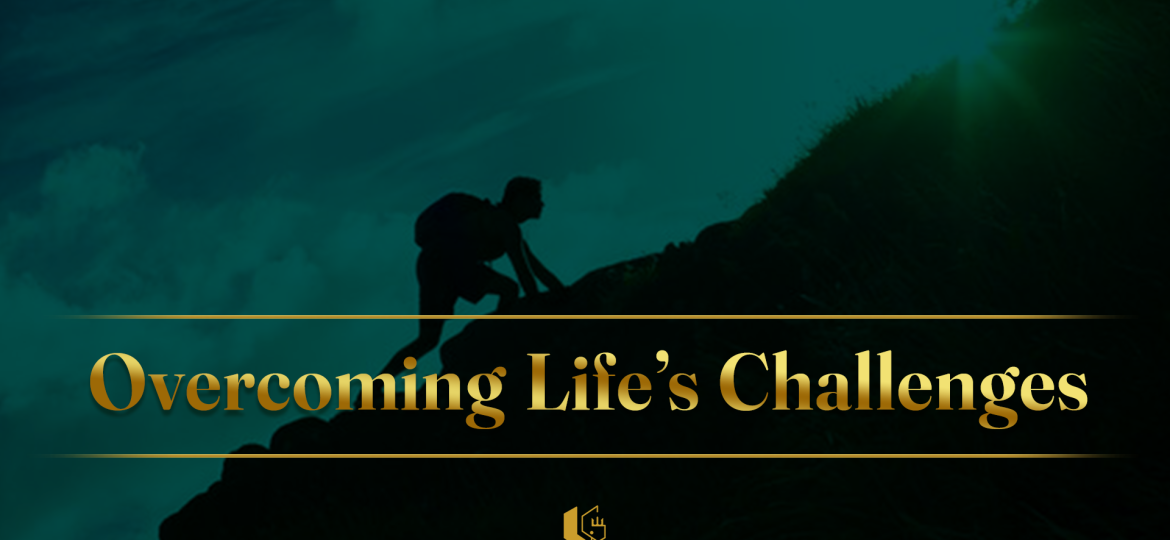
Introduction
Life is full of challenges and obstacles that put us to the test. From financial difficulties to personal issues and complex relationships, everyone encounters challenges at different stages of life—challenges that can either stop us or make us stronger. But what sets apart those who give up from those who overcome adversity?
The key lies in mindset and coping skills. Coaching is a powerful tool that helps shift perspectives, discover creative solutions, and enhance the ability to manage challenges. In this article, we explore from a coaching perspective how to overcome life’s challenges—and even use them for personal growth.
1. Shift Your Perspective: See Challenges as Opportunities for Growth
The way we perceive problems has a direct impact on our ability to solve them. People who see challenges as threats often feel stressed and hopeless, while those who view them as opportunities to learn and grow tend to respond with strength.
🔹 Coaching strategies to shift your mindset:
✔️ Instead of asking, “Why did this happen to me?”, ask, “What can I learn from this situation?”
✔️ Identify and challenge your limiting beliefs.
✔️ Use reframing techniques:
Rather than saying, “I’m stuck in this problem,” say, “This is a chance to strengthen my skills.”
Practical Exercise:
🔹 Write down a recent challenge and list at least three lessons you learned from it.
2. Manage Your Emotions: Regain Inner Control
Negative emotions like stress, anxiety, and hopelessness can weaken us when facing challenges. However, what matters more than what happens is how we respond to it.
🔹 Coaching strategies for emotional regulation:
✔️ Take a deep breath and pause. Give yourself a few minutes to regulate your emotions before reacting.
✔️ Use the technique of “separating emotion from reality”:
-
What actually happened? (Reality)
-
How do I feel about it? (Emotion)
✔️ Write down your emotions: Journaling helps with emotional processing.
Practical Exercise:
🔹 When facing a challenge, instead of reacting immediately, take 3 minutes to breathe deeply and write down your emotions.
3. Focus on Solutions, Not the Problem
One reason people feel helpless when facing problems is their excessive focus on the issue itself. Coaching teaches us to concentrate on finding solutions rather than drowning in the problem.
🔹 Coaching strategies for finding solutions:
✔️ Use the “What if this problem were solved?” technique:
Imagine the problem is resolved—what would be different? This mental image can guide you toward possible solutions.
✔️ Instead of asking “Why me?”, ask “How can I solve this?”
✔️ Use brainstorming: Write down multiple possible solutions—even if they seem unrealistic.
Practical Exercise:
🔹 Write down a current problem and list at least three possible solutions.
4. Increase Mental Flexibility
Successful people are adaptable. They understand that things don’t always go according to plan. Instead of giving up, they adjust to new circumstances.
🔹 Coaching strategies to build mental flexibility:
✔️ Use the “If not A, then what about B?” technique: Don’t rely on a single path—consider alternatives.
✔️ Learn to embrace change: Change is a part of life, and resisting it only leads to more suffering.
✔️ Broaden your perspective: People with limited views see problems as unsolvable. Try to look at the issue from a different angle.
Practical Exercise:
🔹 For a current challenge, find two alternative solutions.
5. Seek Support from Others
No one has to face all of life’s problems alone. One of the core principles of coaching is that seeking support is a sign of strength, not weakness.
🔹 Coaching strategies to access support:
✔️ Ask for guidance from people who have faced similar challenges.
✔️ Talk to a coach or mentor: They can help you see challenges from a new perspective and find suitable strategies.
✔️ Surround yourself with positive and inspiring individuals—the energy of those around you deeply affects your own mindset.
Practical Exercise:
🔹 Choose one person who could help you face a current challenge, and talk to them.
6. Take Action—Even Small Steps Matter
Sometimes, problems cause “decision paralysis,” and we end up taking no action at all. Coaching teaches us that any action—even a small one—is better than none.
🔹 Coaching strategies for effective action:
✔️ Use the “small steps” technique: Break big problems into smaller, manageable parts.
✔️ Focus on one specific action: Instead of trying to solve the whole problem at once, take one meaningful step.
✔️ Give yourself time: Some problems take time to resolve—be patient.
Practical Exercise:
🔹 For one of your current problems, identify one small and actionable step you can take within the next 24 hours.
Conclusion: How to Use Challenges as Opportunities for Growth
Life will always present us with challenges, but how we respond determines the path to success.
✅ To overcome challenges:
✔️ Change your perspective and see problems as learning opportunities.
✔️ Manage your emotions to respond wisely.
✔️ Focus on solutions rather than problems.
✔️ Develop mental flexibility to adapt to change.
✔️ Seek support and surround yourself with inspiring people.
✔️ Take action—even if it’s a small step.
🟢 Remember: Problems are temporary, but the growth and skills you gain from overcoming them are lasting.

